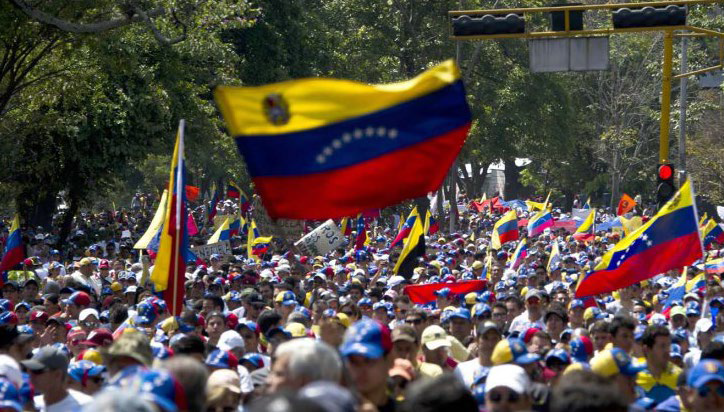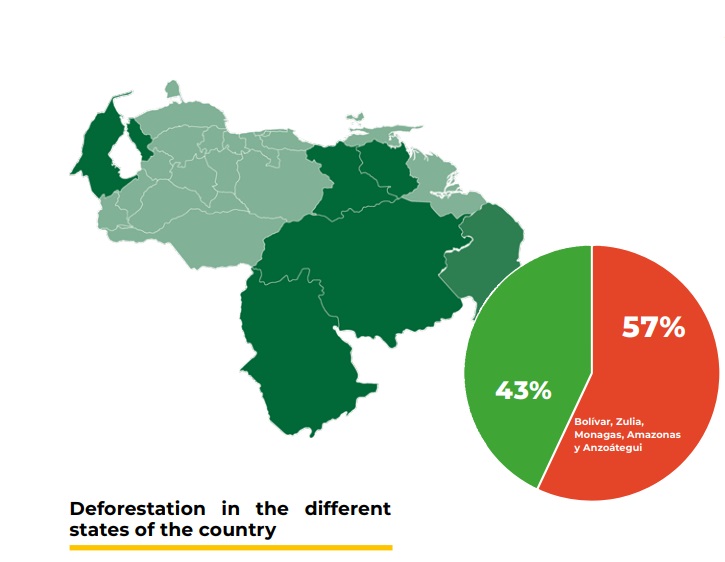The undersigned Civil Society organizations of Civil welcome the establishment of an in-country Office of the Prosecutor of the International Criminal Court in Venezuela, as a step towards the full implementation of the standards of the Rome Statute in favor of the rights of victims to truth, justice, reparation and guarantees of non-repetition.
Prosecutor Karim Khan has made it clear that his goal is to enhance accountability for crimes under the Rome Statute, and that he will continue to assert the ICC jurisdiction before the judges of the Pre-Trial Chamber I “until we are of the view that Venezuela can effectively implement its obligations.”
Mr. Khan has also made it clear that, while the Venezuela I situation advances before the judges and the cooperation and technical assistance functions of his office in Venezuela are implemented, the Office “will deepen its partnerships with all stakeholders and will, in particular, continue to strengthen our crucial engagement with civil society.” This indicates the primary significance given to civil society in achieving the objectives of international justice, as the ICC Prosecutor stated a few days ago during a visit to Colombia.
We wish to underline the following points regarding the establishment of the Office and its implementation in Venezuela:
Transparency and citizen participation
We regret the lack of public information about the visit and its unfolding and the fact that the new Memorandum of Understanding (MoU) has not yet been made public. In a country where institutional opacity and lack of transparency in public administration reign, we expect not to see these dynamics replicated in the fulfillment of the Office’s mandate. The content of the MoU must be disclosed to the public, as well as the priority established by the Prosecutor in which the Office will provide advice and assistance to the authorities, as the MoE contemplates “assistance for legislative developments in the field of justice.” The Office should not provide assistance to legislative processes such as those carried out by the current National Assembly without public notice and citizen participation. We insist that policies must be elaborated and adopted with transparency toward the nation.
Guarantees to Civil Society Organizations
The Office must also contribute to creating the conditions for the State to fulfill its duty to guarantee the existence and work of Civil Society Organizations (CSOs), given that the Prosecutor and the ICC consider them necessary partners in establishing significant responsibilities for crimes against humanity”. The State must refrain from intimidation and reprisals, including the draft law on international cooperation and the law on the Supervision, Regularization, Acts and Funding of Non-Governmental Organizations and related entities. If guarantees are not provided to CSOs, it will be impossible for the Office to advance an independent mandate in Venezuela.
Victim Protection
The opinions of victims and their organizations must be heard and taken into account in the implementation of the Office’s mandate. In particular, the assistance and cooperation of the Office must lead to guarantees of their integrity by the State and the end of discrediting, intimidation and reprisals from the authorities.
Cooperation between the Office and OHCHR
We welcome the establishment of working links between the Office and the United Nations High Commissioner for Human Rights, which should result in the strengthening of both instances and in no way cause a mutual weakening. This synergy must prompt the Venezuelan State to implement the recommendations of the Inter-American System and the United Nations in the field of human rights, including the recommendations of the International Fact-Finding Mission especially aimed at establishing responsibilities for Crimes Against Humanity in Venezuela.
No to denial, yes to genuine investigations and prosecutions
We reaffirm that the national authorities and those who exercise positions of authority of the State must immediately refrain from any attack or discredit against the ICC, the Judges of the Pre-Trial Chamber I, the Prosecutor and the members of his Office. We recall that Venezuela is a party to the Rome Statute and is therefore obliged to cooperate in the achievement of its purposes and respect its institutions. The government must refrain from denying the existence of crimes against humanity that have not even been investigated, including the possible responsibilities of the chains of command.
On the contrary, we expect the mandate of the Office to assuredly prompt the Venezuelan State to conduct genuine criminal investigations and prosecutions under the standards of the Rome Statute; otherwise, the Venezuela I investigation must continue, as Prosecutor Khan has stated.
Finally, we hope that the OTP Office will be a successful mechanism not only in Venezuela but also in Bangladesh, Sudan and Ukraine, where the Prosecutor also plans to establish in-country offices. The people victims of war crimes and crimes against humanity have the right to the truth, justice, reparation and non-repetition, and those responsible for such crimes must be brought to justice so they can be held accountable.
Signatories:
- Acceso a la Justicia
- Coalición por los Derechos Humanos y la Democracia
- Centro de Justicia y Paz (Cepaz)
- Centro de Derechos Humanos de la Universidad Católica Andrés Bello
- Civilis Derechos Humanos
- Defiende Venezuela
- Foro Penal
- Laboratorio de Paz
- Programa Venezolano de Educación Acción en Derechos Humanos (Provea)
Translated by José Rafael Medina




